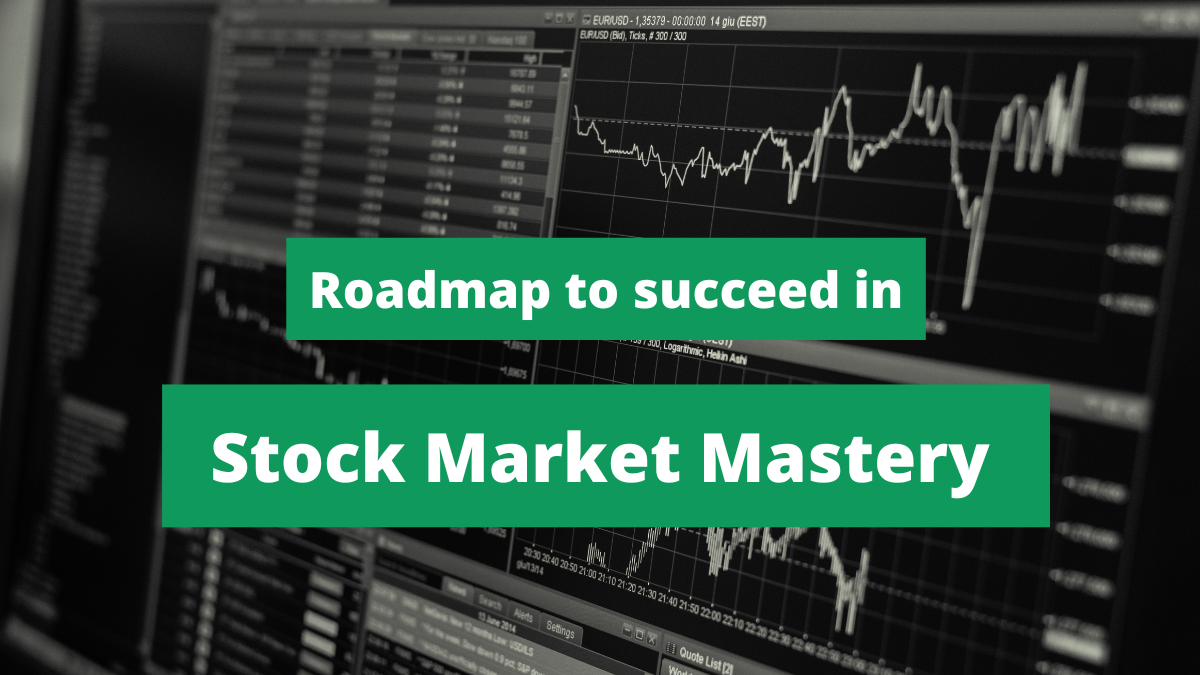
Investing in the stock market mastery can be intimidating for beginners, but with the right education and guidance, anyone can master the art of trading. A Stock Market Mastery Course is designed to equip individuals with the knowledge, skills, and confidence needed to navigate the complexities of the financial markets. In this article, we’ll explore the importance of stock market education, how to choose the right course, what to expect from such a program, the advantages it offers, and real-life success stories of those who have benefited from it.
Table of Contents
Introduction to Stock Market Education
Understanding the Basics
Before diving into the world of investing, it’s essential to have a solid understanding of the basics. A stock market mastery course typically begins by covering fundamental concepts such as stocks, bonds, mutual funds, and other investment vehicles. It also delves into market terminology, trading strategies, risk management techniques, and the factors that influence stock prices.
Importance of Education
Many people are eager to jump into investing without proper education, often resulting in costly mistakes. Stock market education provides individuals with the knowledge and skills needed to make informed decisions, minimize risks, and maximize returns. It empowers investors to take control of their financial futures and build wealth over the long term.
Choosing the Right Course
Researching Course Options
With a plethora of stock market courses available, it’s essential to do thorough research before enrolling in one. Look for reputable institutions or online platforms that offer comprehensive curriculums taught by experienced professionals. Consider factors such as course duration, cost, syllabus, instructor credentials, and student reviews.
Factors to Consider
When selecting a stock market mastery course, consider your individual learning style, goals, and level of experience. Choose a program that aligns with your objectives, whether it’s learning the basics, mastering advanced trading techniques, or specializing in a particular market segment. Additionally, ensure the course provides ample opportunities for hands-on learning and interaction with instructors and fellow students.
What to Expect from a Stock Market Mastery Course
Curriculum Overview
A typical stock market mastery course covers a wide range of topics, including market analysis, technical and fundamental analysis, portfolio management, risk assessment, and trading psychology. It may also include modules on specific trading instruments, such as equities, options, futures, or forex. The curriculum is designed to provide a comprehensive understanding of the financial markets and develop practical skills for successful trading.
Skill Development
In addition to theoretical knowledge, stock market education focuses on skill development through practical exercises, case studies, simulations, and real-time market analysis. Students learn how to conduct research, analyze market trends, interpret financial data, and execute trades effectively. They also develop critical thinking, decision-making, and risk management skills essential for navigating volatile market conditions.
Advantages of Investing in Stock Market Education
Empowerment and Confidence
One of the primary benefits of stock market education is the empowerment it provides to investors. Armed with knowledge and skills, individuals feel more confident in their ability to make informed investment decisions and adapt to changing market conditions. They become less reliant on financial advisors or market pundits and take control of their financial futures.
Long-Term Growth Potential
Investing in stock market education is an investment in oneself with the potential for significant long-term returns. By acquiring valuable skills and insights, individuals can build wealth steadily over time and achieve their financial goals, whether it’s saving for retirement, funding a child’s education, or pursuing their dreams. Stock market education opens doors to lucrative opportunities and unlocks the potential for financial independence.
Real-Life Success Stories
Testimonials from Course Graduates
To illustrate the impact of stock market education, here are a few real-life success stories from individuals who have completed a stock market mastery course:
Sarah Johnson: The course not only taught me how to trade stocks effectively but also instilled confidence in my abilities as an investor. I’m now more empowered to take control of my financial future.
Impact of Stock Market Mastery Course
A stock market mastery course can have several impacts, both positive and negative, depending on various factors such as the quality of the course, the commitment of the learner, and market conditions. Here are some potential impacts:
Improved Knowledge:
A quality stock market mastery course can provide learners with a deeper understanding of how the stock market works, including investment strategies, risk management techniques, and market analysis.
Enhanced Skills:
Learners may develop practical skills such as technical analysis, fundamental analysis, and portfolio management, which can help them make more informed investment decisions.
Confidence Boost:
Gaining knowledge and skills through a mastery course can boost confidence in navigating the complexities of the stock market, leading to more decisive actions and potentially better outcomes.
Financial Returns:
With improved knowledge and skills, learners may have the potential to achieve better financial returns on their investments, although success in the stock market is never guaranteed.
Risk Management:
Effective risk management techniques taught in a mastery course can help learners mitigate losses and protect their investment capital during volatile market conditions.
Networking Opportunities:
Some stock market mastery courses may provide networking opportunities with other investors or professionals in the finance industry, which can be valuable for exchanging ideas and gaining insights.
Time Commitment:
Depending on the intensity of the course, learners may need to dedicate significant time and effort to studying and practicing the concepts taught, which could impact other aspects of their lives.
Cost Consideration:
Enrollment in a stock market mastery course often comes with a financial cost, so learners should weigh the potential benefits against the fees involved.
Psychological Impact:
Success or failure in the stock market can have psychological effects on investors. A mastery course may help learners develop a disciplined mindset and emotional resilience to cope with the ups and downs of investing.
Long-Term Growth:
The knowledge and skills gained from a stock market mastery course can contribute to long-term financial growth and wealth accumulation if applied consistently over time.
Ultimately, the impact of a stock market mastery course depends on the individual’s willingness to learn, apply the concepts taught, and adapt to changing market conditions.
History of Stock Market Mastery Course
The history of stock market mastery courses traces back to the late 19th and early 20th centuries when the concept of investing in stocks started gaining popularity among the general public. During this time, there was a growing demand for education and guidance on how to navigate the complexities of the stock market.
One of the earliest pioneers in stock market education was Charles Dow, who, along with Edward Jones, founded the Wall Street Journal and created the Dow Jones Industrial Average, a widely followed stock market index. Their work laid the foundation for understanding market trends and analysis, which became essential components of later stock market mastery courses.
In the mid-20th century, with the advent of television and radio, financial experts began offering stock market advice and education through these mediums. One notable figure was Benjamin Graham, known as the “father of value investing,” whose teachings influenced generations of investors, including Warren Buffett.
The proliferation of personal computers and the internet in the late 20th century further democratized access to stock market education. Online courses, webinars, and seminars became popular avenues for learning about investing in stocks. Financial gurus and experts, such as Peter Lynch and Jim Cramer, gained prominence through their books, television shows, and online platforms, offering insights and strategies for successful investing.
In recent years, with the rise of fintech startups and online brokerage platforms, stock market mastery courses have become more accessible and tailored to individual needs.
Today, stock market mastery courses are offered by a variety of institutions, ranging from traditional universities to online academies and independent experts. They cater to investors of all levels, from beginners seeking basic knowledge to experienced traders looking to refine their skills. The evolution of these courses reflects the ever-changing landscape of the stock market and the ongoing quest for financial literacy and empowerment.
Future of Stock Market Mastery Course
The future of stock market mastery courses seems promising, especially with the increasing interest in investing and financial literacy. Here are some potential trends and developments that could shape the future of such courses:
Integration of AI and Data Analytics:
As technology advances, stock market mastery courses may incorporate more AI and data analytics tools to analyze market trends, predict stock movements, and provide personalized investment advice.
Interactive Learning Platforms:
Future courses might leverage interactive learning platforms, virtual reality (VR), or augmented reality (AR) to create immersive learning experiences. This could include simulated trading environments where students can practice their skills in real-time.
Emphasis on Behavioral Finance:
Understanding investor psychology and behavior is crucial in navigating the stock market. Future courses may place greater emphasis on behavioral finance principles to help investors make more rational and informed decisions.
Global Perspective:
With the increasing globalization of financial markets, future courses may offer a more global perspective, covering international markets and investment opportunities.
Focus on Sustainable and Impact Investing:
As environmental, social, and governance (ESG) considerations become more important to investors, future courses may incorporate modules on sustainable and impact investing, helping students align their investment strategies with their values.
Accessible and Inclusive Education:
Efforts to make financial education more accessible and inclusive may lead to the development of stock market mastery courses that cater to a broader audience, including individuals from diverse socio-economic backgrounds and marginalized communities.
Continued Evolution of Content:
Stock market trends, regulations, and investment strategies evolve over time. Therefore, future courses will need to continually update their content to reflect the latest developments and provide students with relevant and up-to-date information.
Overall, the future of stock market mastery courses is likely to be dynamic and innovative, driven by advancements in technology, changes in investor preferences, and the evolving landscape of financial markets.
Visit Website :- guest post buy
Also Visit :- Telegram
Conclusion
In conclusion, investing in a stock market mastery course is a wise decision for anyone looking to succeed in the world of trading. It provides the education, skills, and confidence needed to navigate the complexities of the financial markets and achieve long-term financial goals. By choosing the right course, understanding what to expect, and embracing the advantages it offers, individuals can embark on a journey towards stock market mastery and financial independence.




